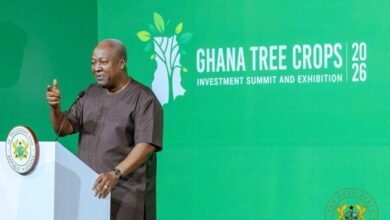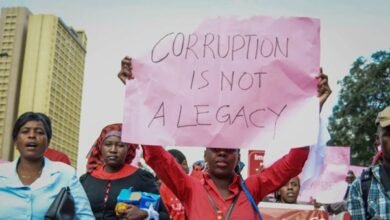AfCFTA : focus on small businesses, women and youth in Africa
The African Continental Free Trade Area (AfCFTA), operational since January 2021, is one of the most ambitious projects since the independence era. It will eventually be the largest trading bloc in the world, with a gross domestic product (GDP) of 3.4 trillion dollars...

By *Aissatou Diallo
What are its specific features and how to familiarize the African private sector with this new commercial environment conducive to business and to Africa’s industrialization and its inclusive and sustainable development?
How can we help businesses, especially micro, small and medium enterprises (MSMEs), as well as women and young entrepreneurs, to access the new business opportunities offered by the continental market?
Ideally, the AfCFTA will enable Akissi of Abidjan to market its attiéké in Luanda and Moroccan Argan oil producers to attract South African investors.
Bolstered by its unique understanding of the African private sector, the International Trade Centre (ITC) has launched One Trade Africa, a 5-year program aimed at preparing and empowering MSMEs, especially those led by women and youth, to benefit from the regional integration process, particularly in the context of the AfCFTA.
working to remove non-tariff barriers, simplify the business environment, and promote inclusive trade policies that foster the development of decent job-generating value chains
One Trade Africa builds on a strong historical partnership with African institutions supporting regional integration at the national, sub-regional and continental levels.
First, the program aims to contribute to the improvement of the business ecosystem for secure intra-African and international transactions. This means working to remove non-tariff barriers, simplify the business environment, and promote inclusive trade policies that foster the development of decent job-generating value chains. For this purpose, we are working with negotiators, regulators, and policymakers to create a regulatory framework that is conducive to intra-African transactions.
Second, we need to build the capacity of trade and investment promotion agencies that support MSMEs in exporting so that they have a portfolio of products and services tailored to the real needs of entrepreneurs and businesses.
Third, we help MSMEs build their productive capacity and grow more competitive by improving their performance, product quality, marketing, and supply chain management. It is in this perspective of capturing new markets that we have developed an online training program entitled « How to export under the AfCFTA, » in partnership and with the financial support of the African Export-Import Bank (AFREXIMBANK). This training program, which includes several modules specific to the requirements of the new African single market, is intended to be the starting point for any export initiative on the continental market.
African consumers are more and more demanding and connected. They want quality products that are available, can be delivered within a reasonable timeframe and are presented according to well thought-out standards
Exporting to Africa now requires specific knowledge, tools and know-how. African consumers are more and more demanding and connected. They want quality products that are available, can be delivered within a reasonable timeframe and are presented according to well thought-out standards.
A survey we conducted with the Permanent Conference of African and Francophone Consular Chambers between May and July 2021 among 2,557 companies in Francophone Africa showed a quarter had never heard of the AfCFTA. Awareness-raising is therefore still needed.
At the height of the health crisis and during the negotiations on the free trade agreement, with the support of our partners in the member states, we carried out our awareness and training activities in nearly 40 African countries.
This year, One Trade Africa, supported by a contribution from Finland, will continue to build on this momentum and expand its range of activities to help African countries meet the challenges of the post-COVID era. The pandemic and current geopolitics have highlighted the urgency of better risk management and preparedness for health, security, and food crises. Trade is the key to a sustainable recovery and the main ingredient for the continued regional integration process. We therefore intend to stay the course and contribute to the successful implementation of the AfCFTA with all our partners for the benefit of African businesses and entrepreneurs.
* Aissatou Diallo is Senior Coordinator for Regional Integration (AfCFTA) and LDCs at the International Trade Centre in Geneva (Twitter: @ADiallo_ITC).
Source : Financial Afrik






